General Travel and Tourist Information
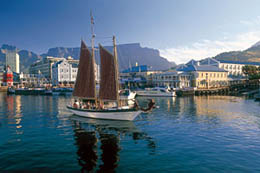 Electricity
Electricity
Mains power throughout South Africa is 220 - 230 volts AC; 50 -
60Hz, but many hotels and other tourist centres also provide 110 volts
sockets. In most places the most common types of power sockets are the
15 - amp three-pin (round pins), and the 5 - amp two-pin (round pins).
Airlines
Many international carriers operate direct flights into Cape Town International
Airport from Europe and the USA. Alternatively participants may travel
via Johannesburg to Cape Town.
Climate
The Western Cape has a Mediterranean climate and October is Spring. During
October, the days can still be cool so it is advisable to bring along
a warm sweater/jacket for the cooler days and evenings. The temperature
ranges between 18ºC and 23ºC during this month.
Currency
The currency unit is South African Rand (R)=100 cents, with the international
symbol ZAR. The South African authorities impose no restrictions on the
amount of foreign currency travellers may bring with them, however, they
set limits on the exports of bank notes. Travellers must obtain the necessary
permit from the South African Reserve Bank should they have more than
R500 in cash in their possession on leaving the country. Foreign currency
can be exchanged at commercial banks, bureau de change and authorised
dealers such as Thomas Cook and American Express. Most major international
credit cards such as American Express, Diners Club, MasterCard,Visa and
their affiliates are widely accepted.
Telephones
South Africa has a sophisticated telecommunications network with adequate
coin and card operated public telephones. Cellular telephones operate
on GSM networks and can be rented at airports or you can enquire at the
Hospitality Desk for assistance.
VAT (Value Added Tax)
Currently set at 14%, VAT is included in the marked/quoted price of most
goods and services. Foreign visitors who leave South Africa with goods
purchased in the country can claim the VAT refund for amounts in excess
of R 250 at the airport on their departure by producing the invoices or
receipts exhibiting VAT paid for the goods in question.
Passport and Visas
For the majority of foreign nationals who travel to South Africa for vacation,
entry is straightforward and hassle-free. All visitors to South Africa
must be in possession of a valid passport in order to enter the country
and in some cases, a visa.
All visitors to South Africa must have at least two blank pages in
their passport to be allowed entry into South Africa.
Driving
A valid Driver's licence, provided the photograph is an integral part
of the document and provided it is printed in English, is accepted. If
your licence does not comply with these requirements, you should obtain
an International Driving Permit before your departure for South Africa.
Insurance
It is advisable to take out comprehensive insurance for the duration of
your stay in Southern Africa. The host of this event, the 14th International
Botrytis Symposium 2007, their sponsors; the organisers, Conferences
et al; the venue, Cape Town International Convention Centre and all the
service providers cannot be held responsible for any loss or damage to
personal property, injury or death for the duration of the event or arrangements
made on behalf of the visitor, for activities before or after the 14th
International Botrytis Symposium 2007. South Africa has no national
health scheme. It is advisable to purchase travel insurance that covers
medical expenses during your stay.
Health and Immunisation
The only inoculation requirement for visitors is a yellow fever vaccination
certificate from those who enter South Africa within six days of leaving
a yellow fever zone. The vast majority of South Africa, including major
centres, carries no risk of malaria. Only take anti-malarial medication
if you are travelling to a highrisk area. Malaria is endemic in some parts
of Mpumalanga, Northern Province and Kwa-Zulu Natal and it is essential
to take precautions if you intend visiting these areas. Consult a doctor
or pharmacist about the most suitable prophylactic.
Shopping
Cape Town is an affordable shopping destination with a wide variety of
goods on offer. From handcrafted jewellery, intricate beadwork and traditional
African art to designer labels, diamonds and precious stones, Cape Town
has a shopping experience for everyone. Visit one of the trendy shopping
malls or scour the local flea markets and street-side stalls for gifts,
souvenirs and a piece of Cape Town to take home.
Victoria and Alfred Waterfront
Situated between Robben Island and Table Mountain in the heart of Cape
Town's working harbour, the Victoria & Alfred Waterfront has become
South Africa's most visited destination. Set against a backdrop of magnificent
sea and mountain views, exciting shopping and entertainment venues are
intermingled with imaginative office locations, world-class hotels and
luxury apartments in the residential marina.
The Waterfront is open for shopping from 9am until 9pm. Movie theatres
and restaurants stay open later.
Banking facilities are available throughout the Waterfront, with two bank branches and over ten ATM's and American Express and Rennies Foreign Exchange facilities for International visitors are provided seven days a week. ABSA and Nedbank are the two banks in the Waterfront.
Safety
Cape Town's Central Business District and major malls have made considerable
efforts to safeguard tourists and residents against crime. Surveillance
cameras monitor activities in the central business district and security
guards watch over major shopping centres. Nonetheless, tourists should
take the sensible precautions they would in any major city in the world.
Avoid carrying large sums of cash around, leaving belongings unattended
and avoid wandering on your own after dark in deserted streets.
Please do not give money to beggars and street children.
Websites
For more information on South Africa, visit:
www.southafrica.net
www.aboutcapetown.com
www.cape-town.org
Information obtained from: South African Tourism,
Cape Town Tourism and V&A Waterfront.
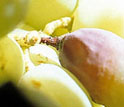
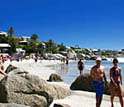
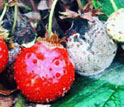
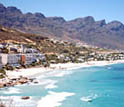
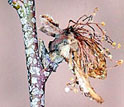
| Accommodation | Social Programme | Pre & Post Symposium Tours | General Travel and Tourist Info | Contact |
Copyright© 14th International Botrytis Symposium 2007. All rights reserved. No part of this website may be reproduced
or transmitted in any form without written permission from the Symposium Organizer.